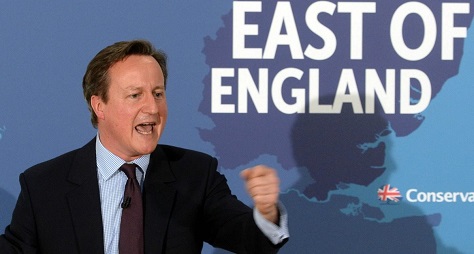Last week, Sen. Bernie Sanders proudly claimed that American economic policy should look more like Scandinavia’s.![]()
But for Republican presidential hopefuls, it might be more fruitful to turn their gaze slightly to the south of Scandinavia — to the United Kingdom, where Conservative prime minister David Cameron won an unexpectedly robust victory in last Thursday’s general election. Not only did Cameron stave off predictions of defeat by the center-left Labour Party, his Tories won an absolute (if small) majority in the House of Commons, increasing his caucus by 24 MPs. This, in turn, will allow Cameron to govern for the next five years without a coalition partner. That’s all well and good considering that the Liberal Democrats lost 48 of their 56 seats in Parliament.
It’s rare, in a parliamentary system, for a government to win reelection with even greater support, let alone after five years of budget cuts and economic contraction that transformed into GDP growth only in the last two years. Margaret Thatcher was the last prime minister to do so in 1983, and that followed her stupendous victory against Argentina in the Falklands War of 1982.
For U.S. conservatives, Cameron’s victory in winning the first Tory majority since 1992 should provide a road map for the kinds of policies that can pave the way to a GOP victory in 2016. Republicans know that they’ve won a popular vote majority just once since 1988, and demographic changes are making the Republican presidential coalition more elderly, white and rural in an increasingly young, multiracial and urban society.
Cameron benefitted from smart political strategy that painted Labour, fairly or unfairly, as untrustworthy stewards of the British economy. He also appealed to the fears of English voters in warning that a Labour government, propped up by votes from the pro-independence Scottish National Party, would amount to a “coalition of chaos” in Westminster. Cameron also benefitted from doubts among British voters about Labour’s leader, Ed Miliband, who pulled Labour to the left of Tony Blair’s third-way “New Labour”centrism and who never seemed to fit the role of potential prime minister.
Nevertheless, there are at least three areas where Republicans could replicate Cameron’s agenda and, potentially, turn the tables on Democrats in 2016. Continue reading What Republicans could learn from Cameron’s Conservatives

